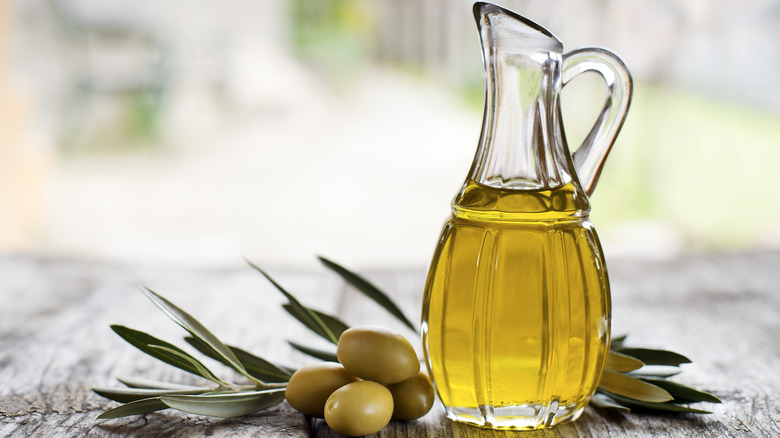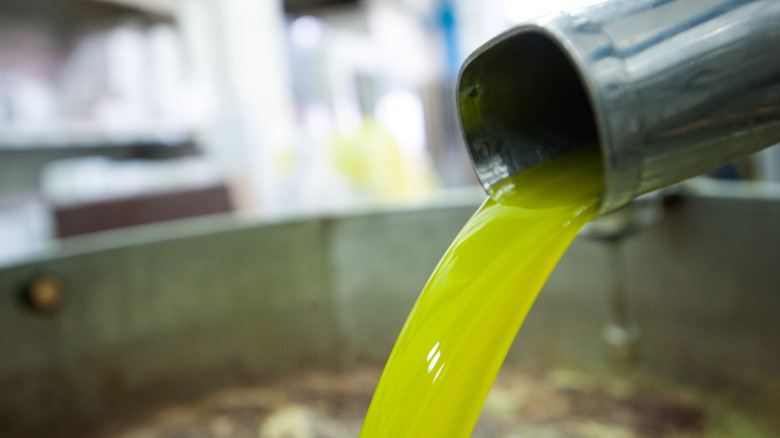What Is Light Olive Oil And How Does It Compare To Extra Virgin?
Of all the aisles in the grocery store, the one designated to cooking oils may seem to be the longest and most daunting. Honing it down to the olive oil section doesn't seem to offer much reprieve from the confusion. The myriad of labels decorating the bottles clues you in on everything from how the oil was made to where it came from and when it was bottled, to its best uses and what it will taste like.
Olive oil is made by crushing the flesh and pits of ripe olives to extract their oils. Stainless steel machines grind the olives into a paste that is then mixed with water, allowing the oil to separate. The oil is then refined, which may include bleach and deodorization.
If you've ever reached for a bottle of olive oil labeled light, thinking it was the healthier option in some form or another because of how it was made, guess again. What is light olive oil, and how is it different from extra virgin?
The difference lies in the processing
First things first, the light classification of olive oil has nothing to do with calories or any other category usually associated with that word plus food. It simply implies the color, taste, and texture are just that — lighter than other variations of olive oil.
While olive oil comes in a rich, darker shade of golden-green with an unctuous mouthfeel and distinct flavor, light olive simply takes on the role of an undistinguishable oil in both flavor and color — not much and pale golden, respectively.
The difference between the two is a result of the level of processing the oil undergoes. Extra-virgin olive oil comes from cold-pressing olives with no chemicals or heat involved. It's the purest form of olive oil on that shelf. The olives then undergo further pressings. Light olive oil is the product of these pressings, and heat and chemicals are often involved.
Because light olive oil is highly processed, it has a higher smoke point, a neutral taste, and is less expensive than extra-virgin. Due to the refinement and processing, it also has fewer nutrients and more chemicals than its higher-quality extra-virgin counterpart.

